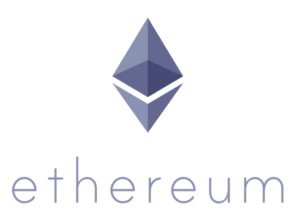$BLK $IVV $BTC
#BlackRock #ETF #HedgeFund #Investing #FinanceNews #Alternatives #Democratization #WealthManagement #AssetManagement #Crypto #MarketTrends #Innovation
BlackRock’s recent filing for an exchange-traded fund (ETF) rooted in hedge fund strategies highlights the asset manager’s evolving focus on driving access to alternative investment opportunities. This move aligns with an ongoing trend of major financial institutions seeking to broaden their appeal to retail and institutional investors by providing exposure to historically exclusive investment vehicles. Hedge fund strategies, typically reserved for high-net-worth individuals and institutional players, encompass a wide array of techniques to maximize returns, such as long/short positions, arbitrage, and macroeconomic bets. Analysts point out that by adapting these strategies to the ETF framework, BlackRock could be ushering in a democratically accessible alternative market at a scale previously unseen.
The introduction of such a product carries significant implications for the broader ETF space, particularly given BlackRock’s dominant position in the industry. The company’s $BLK stock serves as a bellwether for its innovative strides in asset management, often influencing broader market behavior. With ETFs now commanding over $10 trillion in global assets, integrating hedge fund strategies within this structure could draw a new segment of investors intrigued by higher-risk, higher-return profiles. Furthermore, this diversification into alternatives dovetails with growing demand for such vehicles amid elevated market volatility, where traditional equity and fixed-income investments face growing pressure. The question for market participants is whether institutional practices can be effectively translated into a public format without compromising strategy efficacy or cost efficiency.
For BlackRock, this filing also underscores its competitive response to industry peers like Vanguard and Fidelity, who are progressively innovating within the ETF ecosystem. Simultaneously, it aligns with a broader drive in wealth management to bridge the gap between institutional-grade instruments and retail accessibility. This democratic approach could foster greater competition across the industry, compelling rival asset managers to reimagine how best to capitalize on the growing appetite for alternatives. However, skeptics caution that repackaging hedge fund approaches into a more mainstream ETF format could dilute the strategies’ benefits or make them overly reliant on market conditions. Nevertheless, market watchers anticipate a robust reception amid the broader interest in financial innovation.
The timing of this initiative may also benefit from macroeconomic tailwinds. Ongoing shifts in global central bank policies, persistent inflation, and heightened recession fears are reshaping investment behaviors as investors search for uncorrelated return streams. By converging the innovation of ETFs with the allure of sophisticated hedge fund methodologies, the move could appeal to a diverse investor base, including crypto enthusiasts exploring strategic alternatives to balance $BTC exposure. While regulatory hurdles remain—for both traditional and digital assets—the successful launch of such a fund could set a precedent, further blurring the lines between retail investing and professional fund management. BlackRock’s pivot illustrates that alternatives could increasingly become the mainstream of tomorrow.











Comments are closed.